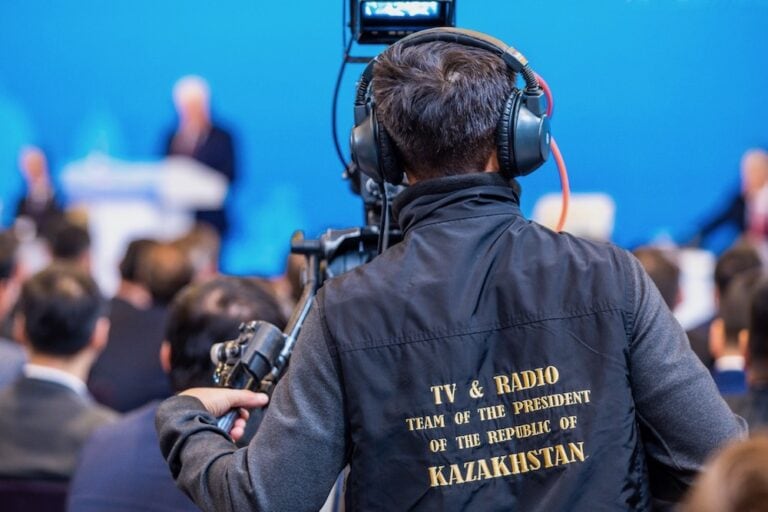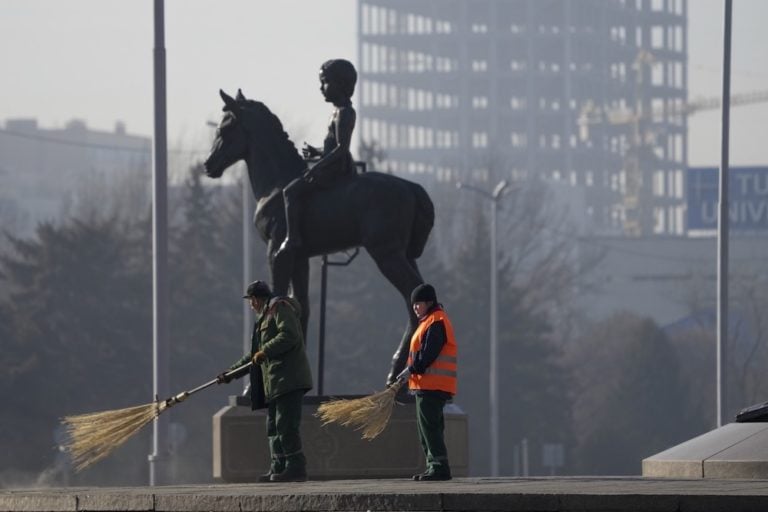(Adil Soz/IFEX) – The following is joint statement by Adil Soz and eight other freedom of expression organisations to members of the Kazakh Parliament, in response to media law amendments proposed by the Ministry of Internal Affairs and the Ministry of Culture and Information: Dear Members of Parliament, Freedom of expression NGOs in Kazakhstan express […]
(Adil Soz/IFEX) – The following is joint statement by Adil Soz and eight other freedom of expression organisations to members of the Kazakh Parliament, in response to media law amendments proposed by the Ministry of Internal Affairs and the Ministry of Culture and Information:
Dear Members of Parliament,
Freedom of expression NGOs in Kazakhstan express their concern over the recent attempts by the executive branch to reform media legislation.
The Ministry of Internal Affairs has initiated amendments to defamation legislation. This was surprising because defamation and insult provisions refer to cases that are based on private complaints and the police have nothing to do with them. Furthermore, civil lawsuits in which individuals are accused of “insulting the honour, dignity and business reputation” of the plaintiffs are beyond the competence of the Interior Ministry. So what does the Ministry propose to do in this area that is out of its competence? It proposes to take journalists to court for distributing “authentic, but insulting private information.” In effect, this means that the Ministry will deprive society of the right to know about the abuses and amoral behaviour of public figures. There can be no other meaning for the proposal, because liability for breach of privacy was already established in Article 144 of the Civil Code. The amendments proposed by the Interior Ministry are designed not to repeal, but to veil criminal liability for journalists facing defamation and insult charges.
Another draft law that the Ministry of Culture and Information plans to submit to Parliament, which Information Minister Yertysbayev declared would liberalise media conditions, will not, in fact, solve any of the existing problems in the media community nor will it strengthen freedom of expression guarantees set out in the Constitution.
The amendments proposed by the Interior and Culture and Information Ministries to the Criminal Code have nothing to do with decriminalisation of defamation and insult provisions, as requested by the OSCE. The promise to de-monopolise media outlets is declarative, lacking concrete ideas. The proposal made by the minister to allow electronic media outlets to work without registration is purely technical.
The need to liberalise media legislation has grown recently. But we are concerned over the sudden draft law proposed by the Interior Ministry and efforts by the Information Minister to bring forward a few so-called “liberal” changes to the outdated media law, instead of launching fundamental reforms to media legislation. Perhaps this is an attempt to prevent the draft media law proposed by a number of local NGOs from being adopted. It would be logical to use this draft, which successfully passed both internal and international assessments, as the basis for the new media law and to determine ways to strengthen democratic freedom of expression principles and media responsibility. Local freedom of expression organisations await this law and are willing to help Members of Parliament to work on it.
Seitkazy Matayev
Union of Journalists
Gulmira Alimbekova
Congress of Journalists
Tamara Kaleyeva
Adil Soz Foundation for Protection of Freedom of Speech
Askar Shomshekov
Pavlodar Center to Support Regional Journalism
Diana Medvednikova
North Kazakhstani Media Center
Zaure Zhumaliyeva
Adil Arka Public Foundation
Viktoriya Li
TV-batys-info Public Association
Tatyana Pak
FORPOST Public Foundation


